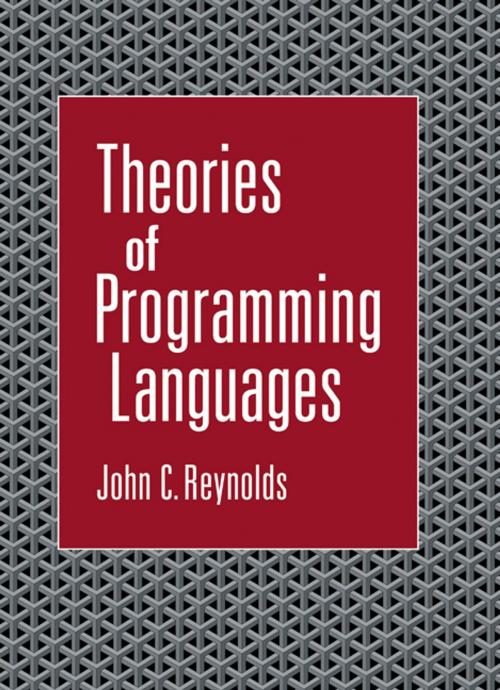Theories of Programming Languages
Nonfiction, Science & Nature, Mathematics, Discrete Mathematics, Computers, Programming, Programming Languages, General Computing| Author: | John C. Reynolds | ISBN: | 9781139930550 |
| Publisher: | Cambridge University Press | Publication: | October 13, 1998 |
| Imprint: | Cambridge University Press | Language: | English |
| Author: | John C. Reynolds |
| ISBN: | 9781139930550 |
| Publisher: | Cambridge University Press |
| Publication: | October 13, 1998 |
| Imprint: | Cambridge University Press |
| Language: | English |
First published in 1998, this textbook is a broad but rigourous survey of the theoretical basis for the design, definition and implementation of programming languages and of systems for specifying and proving programme behaviour. Both imperative and functional programming are covered, as well as the ways of integrating these aspects into more general languages. Recognising a unity of technique beneath the diversity of research in programming languages, the author presents an integrated treatment of the basic principles of the subject. He identifies the relatively small number of concepts, such as compositional semantics, binding structure, domains, transition systems and inference rules, that serve as the foundation of the field. Assuming only knowledge of elementary programming and mathematics, this text is perfect for advanced undergraduate and beginning graduate courses in programming language theory and also will appeal to researchers and professionals in designing or implementing computer languages.
First published in 1998, this textbook is a broad but rigourous survey of the theoretical basis for the design, definition and implementation of programming languages and of systems for specifying and proving programme behaviour. Both imperative and functional programming are covered, as well as the ways of integrating these aspects into more general languages. Recognising a unity of technique beneath the diversity of research in programming languages, the author presents an integrated treatment of the basic principles of the subject. He identifies the relatively small number of concepts, such as compositional semantics, binding structure, domains, transition systems and inference rules, that serve as the foundation of the field. Assuming only knowledge of elementary programming and mathematics, this text is perfect for advanced undergraduate and beginning graduate courses in programming language theory and also will appeal to researchers and professionals in designing or implementing computer languages.















